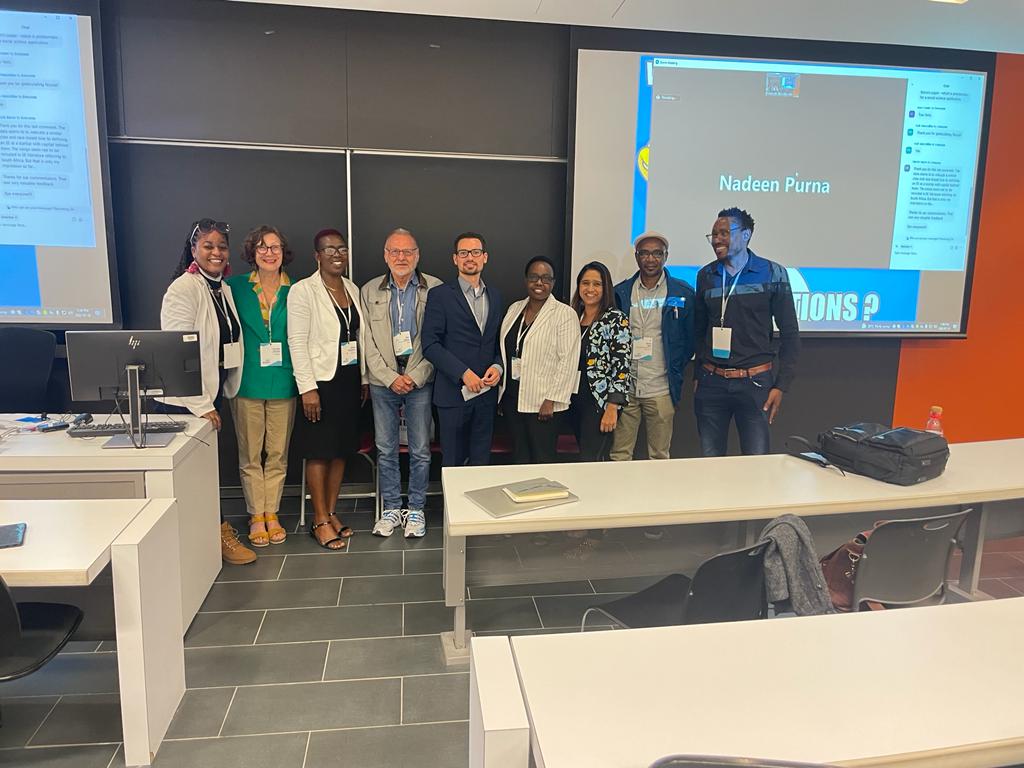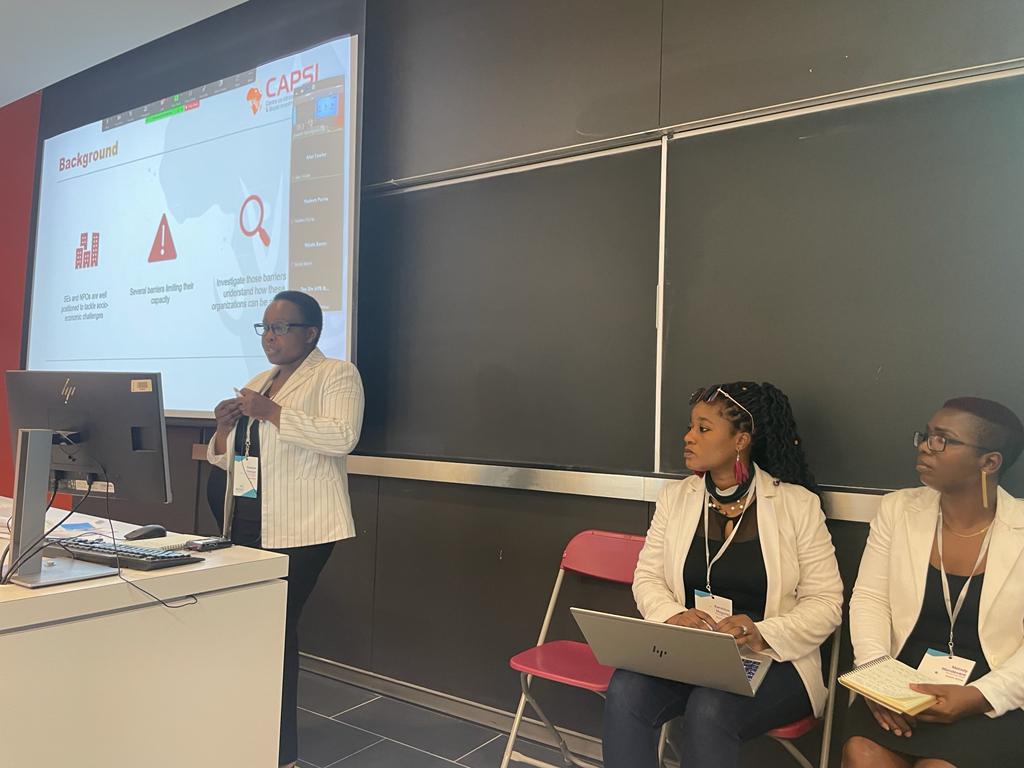The RUC project organized a panel at the International society for Third Sector Research conference, which took place at Concordia University, Montreal from July 12th – 15th 2022.

ISTR 2022 Panel:
Social Entrepreneurship and Urban Resilience
Subtheme: Social Economy, Social Innovation and the Third Sector
Chair:
Bhekinkosi Moyo, African Centre for Philanthropy and Social Investment, University of the Witwatersrand, Johannesburg, South-Africa
Annette Zimmer, Institute for Political Science, Westfälische Wilhelms-Universität Münster, Germany
Abstract:
Worldwide and specifically in the global south, local communities and neighborhoods are faced with severe problems caused by climate change, migration, and increasing poverty. Social enterprises (SEs) and nonprofit organizations (NPOs) are equipped for addressing the needs of local communities and neighborhoods in need because they combine the best of two worlds: an entrepreneurial spirit in search for innovation with a community orientation and a sensitivity for the social and economic potentials of local environments.
There is an abundance of literature depicting the specificity of SEs (Young 2017; Mair/Rathert 2021; Galego et al 2021; Defourny/Nissens 2017, Gidron 2017). “Third party government” as a synonym for public-private co-operation has been a key-topic since the beginning of NPO-research (Zimmer/Smith 2021). More recently, comparative studies increasingly focus on the eco-systems of SEs and NPOs (Biggeri et al 2019; Enjolras et al 2018).
However, research on NPOs and SEs is by and large restricted to highly industrialized countries. In the global south and particularly in Africa, empirical research linked to social entrepreneurship is still in its infancy (Littlewood/Holt 2018). The same holds true for the analysis of the embeddedness of NPOs and SEs, their modes of co-operation with local governments as well as the chances and challenges of their eco-systems. The proposed panel addresses the topic of social entrepreneurship and urban resilience in the global south by building on first results of the research project “Resilient Urban Communities: (RUC).” Supported by a grant of the German Federal Government, researchers from South Africa and Germany investigated how and to what extent SEs and NPOs contribute to the resilience of local neighborhoods in Johannesburg, South Africa. RUC´s research design combines approaches from public administration, participatory urban governance and business administration. At the city-level, RUC analyzes whether and how NPOs and SEs are part of the urban governance arrangement. Inspired by participatory urban governance, RUC investigates SEs and NPOs in selected neighborhoods for their capacity to combine business activities with social service delivery and community empowerment. At the neighborhood level, RUC hypothesizes that this unique combination contributes to the resilience of local communities. Since SEs and NPOs are resource-dependent, the analysis of their eco-systems constitutes a further research component. RUC identifies parameters that either support or hinder the work and embeddedness of SEs and NPOs in local communities. Finally, a key-issue of RUC is the topic of how selected NPOs and SEs are managing their daily operation, how and to what extent they are able to make use of the potentials of the eco-system, and what hinders them to fully live up to their potentials.
The papers presented will provide an overview of the state of the art in the field, outline the methodology applied by RUC, and present first results of the empirical investigations in Johannesburg.
Paper 1: Traditions and Perspectives of NPOs and SEs in Governance Arrangements
Annette Zimmer, Institute for Political Science, Westfälische Wilhelms-Universität Münster, Germany
Paper 2: Sustaining Social Enterprises and NPOs in South Africa
Bhekinkosi Moyo, Roselyne Koech and Emmanuel Quaye, Centre on African Philanthropy and Social Investment, Wits Business School, University of the Witwatersrand
Paper 3: The Governance of Social Entrepreneurship in South Africa
Roman Turczynski, Institute for Political Science, Westfälische Wilhelms-Universität Münster, Germany
Paper 4: Social enterprise ecosystems and urban governance in Johannesburg
Nicole Baron, Barbara Schönig, Institute for European Urban Studies, Bauhaus-Universität Weimar, Germany

